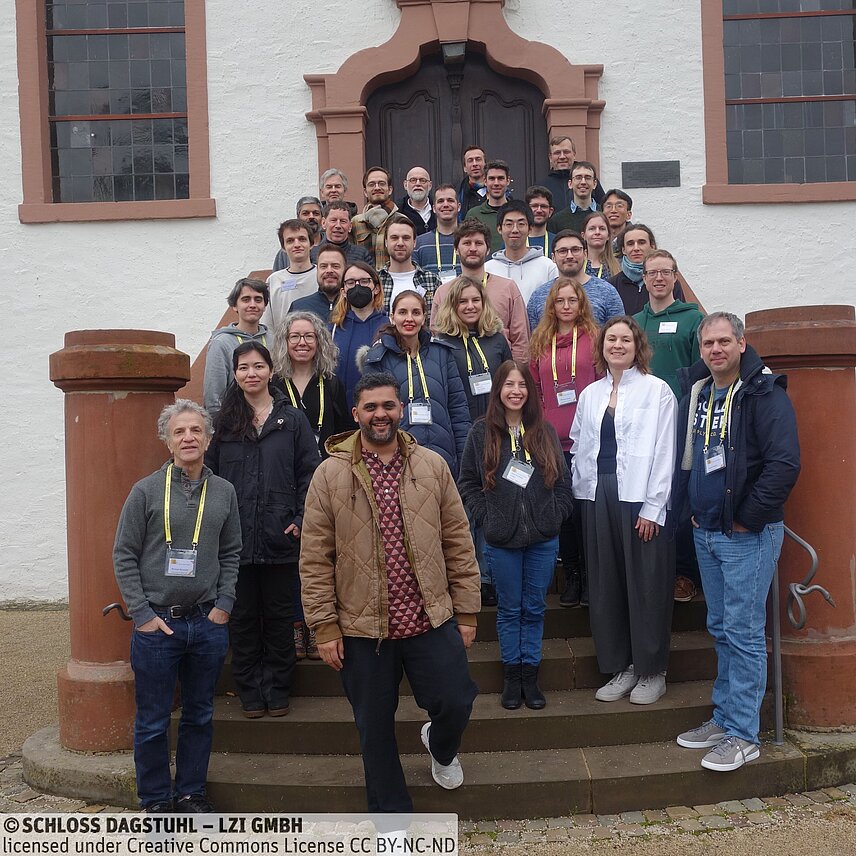07.02.2025
From February 2 to 7, a seminar on “Logic and Neural Networks” took place in Dagstuhl. Prof. Dr. Daniel Neider from the RC Trust was one of the co-organizers.
 ©SCHLOSS DAGSTUHL - LZI GMBH
©SCHLOSS DAGSTUHL - LZI GMBH
Over the past few days, researchers and experts have met to discuss the topic of “Logic and Neural Networks”. The RC Trust was also represented there: Prof. Dr. Daniel Neider co-organized the event. He heads the Verification and Formal Guarantees of Machine Learning research group at the RC Trust.
About the seminar:
Logic and machine learning play a central role in computer science, especially in AI research. Alan Turing recognized the potential of a connection between statistical machine learning and a neutral, symbolic language such as logic in his essay “Computing Machinery and Intelligence” published in 1950. Recent successes in the field of deep learning have given new impetus to this combination.
The Dagstuhl Seminar aims to bring together scientists from different disciplines working on the integration of logical constraints into neural networks. The interdisciplinary exchange is intended to create new connections and develop joint approaches. Thematically, the seminar focuses on several closely related areas. These include the implementation of formal logical rules in neural networks during training - an essential aspect of AI safety. It also examines how logical methods can be used to formulate and check safety requirements. Important security features include robustness against adversarial attacks and various fairness criteria.
Another focus is on the use of logical rules as a supplement to classical supervision, especially in situations where explicit training data is only available to a limited extent and synthetic data generation is not practicable - for example in scene recognition. In addition, the use of logical languages to explain model behavior plays a central role, especially for hard-to-interpret “black box” models such as graph neural networks. This topic is closely related to the study of the expressive power of neural networks using logical and descriptive complexity theories.
The seminar does not consider these topics in isolation, but aims to identify overarching approaches and connections to other areas of machine learning with similar objectives. For example, parallels between rule-based training and other weakly supervised learning methods, such as the use of physical conservation laws, will be examined. In the areas of verification and enforcement of logical constraints, the aim is also to exchange ideas with researchers from the field of AI security.
Among other things, a closer networking of the participating disciplines, the formulation of common research goals and a more uniform view of the connection between logic and neural networks are expected. In addition, existing methodological gaps will be identified, long-term cooperation between researchers from the fields of computer logic and machine learning will be promoted and new benchmarks for the use of logic in neural networks will be developed.
For more information visit the website.
Category
- Network
- Event